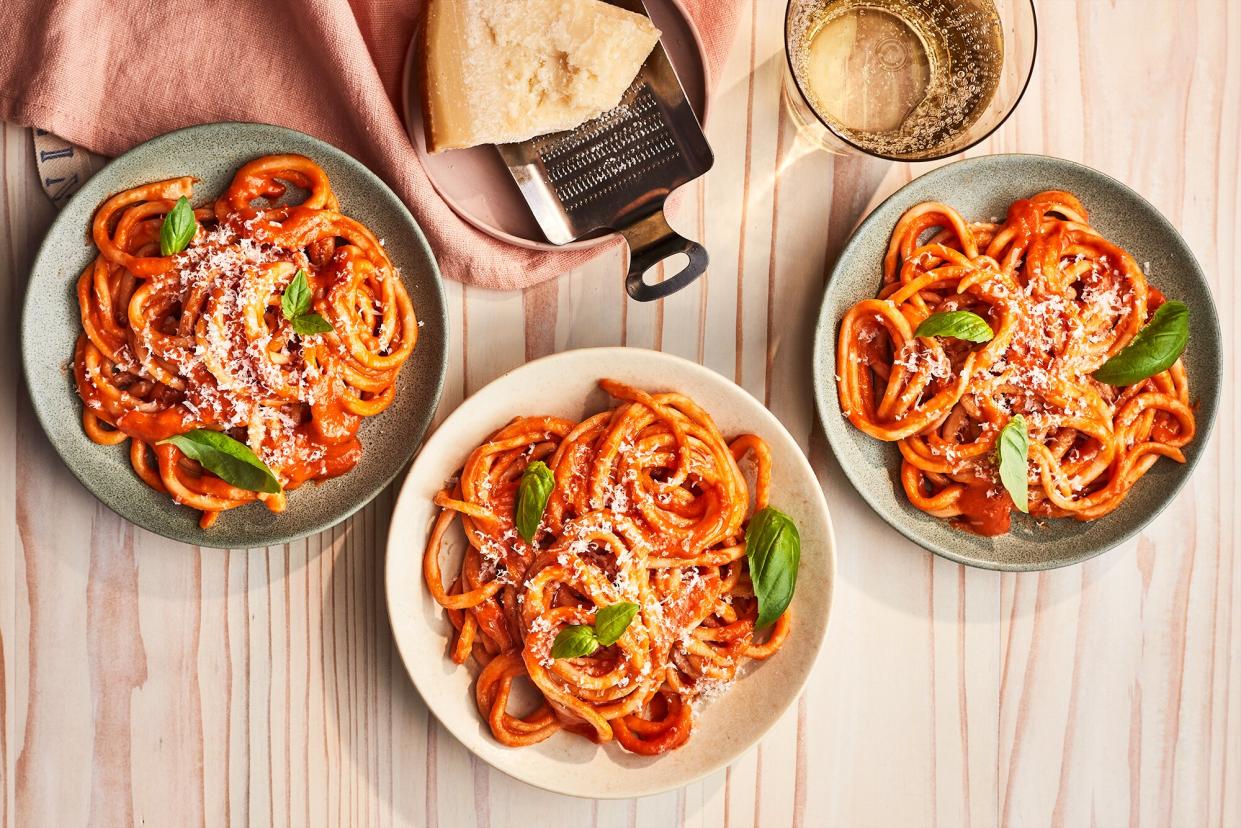5 Smart Tips for Cooking Better Pasta

Photo by Victor Protasio / Food Styling by Micah Morton / Prop Styling by Missie Neville Crawford
Cooking pasta may be nearly second nature to many of us. After all, this is one of the first foods many of us learn to cook on our own, even if those early adventures are mostly about a box of mac and cheese or a packet of instant noodles. But shockingly, there are still a few mistakes many of us make when it comes to cooking our pasta, and it is definitely having a negative effect on our pasta outcomes. Will making these mistakes make our pasta inedible? Nope. But it will keep us from the platonic ideal of pasta that we all deserve. So let us all make a pact to stop doing these five little things and make our pasta all it can be.
RELATED: Spaghettoni with Butter and Brewer's Yeast
Undersalting the cooking water
If there is one thing to adopt as the base standard of all pasta cookery, it is to properly salt the water the pasta is being cooked in. The boiling process is the only time you can actually season the pasta, anything else is just seasoning the sauce. Imagine cooking your ribs with no salt or spices, just plain, and assuming the barbecue sauce will make up for it. Cooking water for pasta should taste salty. The romantic adage about it tasting like the sea is a little florid, but the thinking is sound. Taste your water before you add your noodles, and if it doesn't have the level of saltiness of a good chicken broth, add more — one tablespoon at a time — until you get there.
Adding oil to the pasta water
While you do want to season your pasta water with salt, you do not want to attempt to flavor your pasta or "prevent it from sticking" by adding a slick of oil to the boiling water. The oil will cling to your pasta when you drain, and while it might help prevent the noodles from sticking to each other, it will also prevent your sauce from sticking to your noodles.
RELATED: Squid and Shrimp Fideuà with Allioli
Not checking the pasta early or often enough
Al dente means "to the tooth" and is code for "my noodles are not mush." You do not want your pasta to have a texture of paste, you want each strand or shape to stand on its own and hold up to its eventual coating, and give a nice chewy texture. Having said that, you also do not want it crunchy in the middle, and "to the tooth" does not imply "stick to the tooth." Start taste-testing your pasta a good 2-3 minutes before the package directions say, and then every minute until it has the perfect texture.
Not saving some of the pasta water
This starchy, seasoned elixir is the magic difference between pasta sauce that clings luxuriously to every noodle, with a beautiful creamy texture, melding the two into one cohesive unit and pasta sauce that feels just spooned on top of noodles. Adding a little of the pasta cooking liquid to your sauce as you combine the two is paramount to perfect dishes. Always save a cup or two of the liquid before straining.
RELATED: Pasta with Roasted Sun Gold Tomato Sauce
Rinsing pasta
That starch in the pasta water you just saved? Some of it is clinging to the outside of your drained pasta and it is there to help your sauce adhere, like delicious glue. Pasta, after all, essentially means "paste," which might help you to remember not to turn the sprayer on your colander full of noodles once they are in the sink. The only exception to this rule is for pasta that will be used in chilled pasta salads, which can use a fast cold rinse to help stop the cooking.
Now that you know the top five things not to do to your pasta, go forth and get your noodle on. That next bowl of perfectly sauced noodles will be vastly improved.

